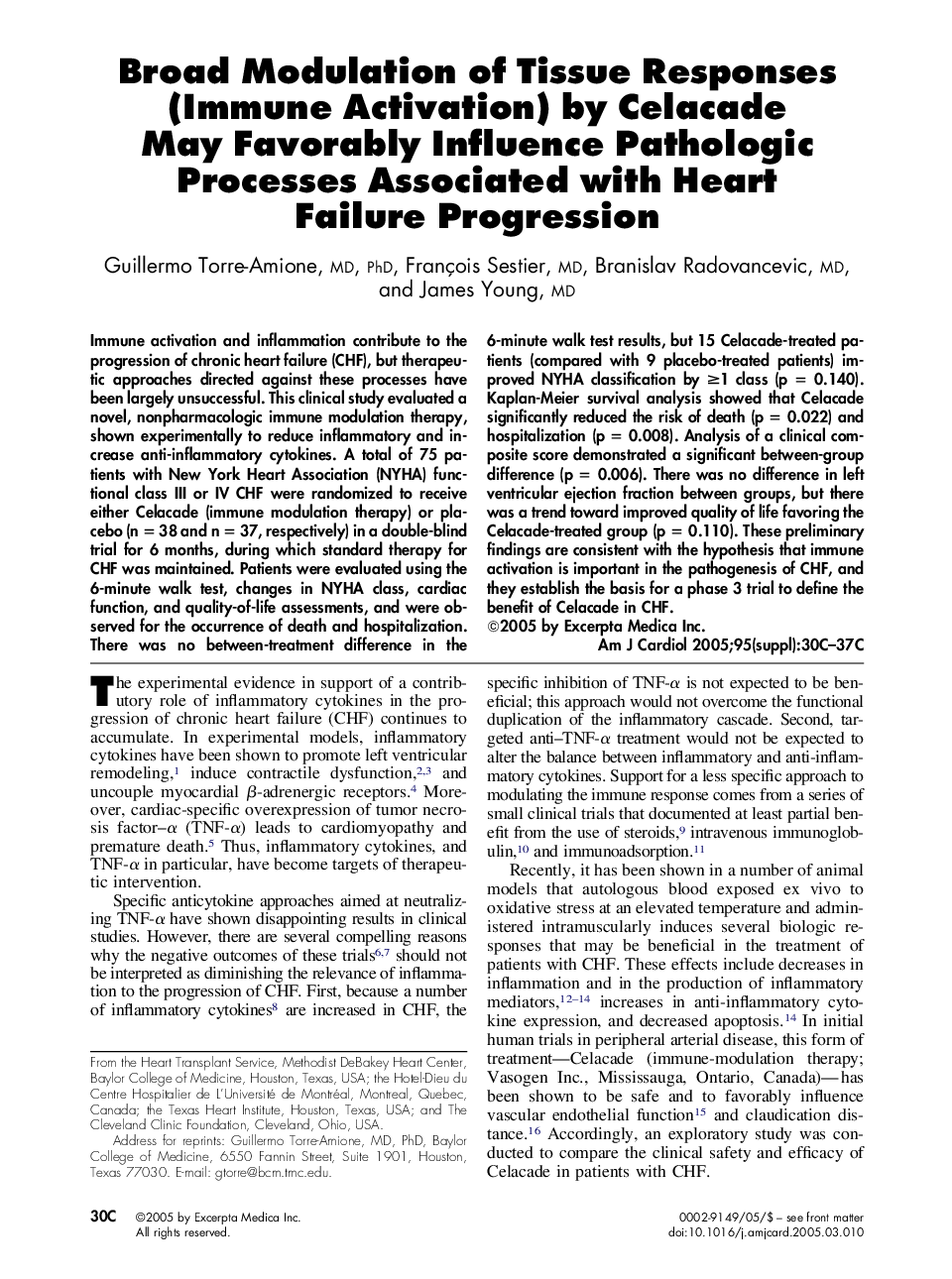| Article ID | Journal | Published Year | Pages | File Type |
|---|---|---|---|---|
| 9936462 | The American Journal of Cardiology | 2005 | 8 Pages |
Abstract
Immune activation and inflammation contribute to the progression of chronic heart failure (CHF), but therapeutic approaches directed against these processes have been largely unsuccessful. This clinical study evaluated a novel, nonpharmacologic immune modulation therapy, shown experimentally to reduce inflammatory and increase anti-inflammatory cytokines. A total of 75 patients with New York Heart Association (NYHA) functional class III or IV CHF were randomized to receive either Celacade (immune modulation therapy) or placebo (n = 38 and n = 37, respectively) in a double-blind trial for 6 months, during which standard therapy for CHF was maintained. Patients were evaluated using the 6-minute walk test, changes in NYHA class, cardiac function, and quality-of-life assessments, and were observed for the occurrence of death and hospitalization. There was no between-treatment difference in the 6-minute walk test results, but 15 Celacade-treated patients (compared with 9 placebo-treated patients) improved NYHA classification by â¥1 class (p = 0.140). Kaplan-Meier survival analysis showed that Celacade significantly reduced the risk of death (p = 0.022) and hospitalization (p = 0.008). Analysis of a clinical composite score demonstrated a significant between-group difference (p = 0.006). There was no difference in left ventricular ejection fraction between groups, but there was a trend toward improved quality of life favoring the Celacade-treated group (p = 0.110). These preliminary findings are consistent with the hypothesis that immune activation is important in the pathogenesis of CHF, and they establish the basis for a phase 3 trial to define the benefit of Celacade in CHF.
Related Topics
Health Sciences
Medicine and Dentistry
Cardiology and Cardiovascular Medicine
Authors
Guillermo MD, PhD, François MD, Branislav MD, James MD,
